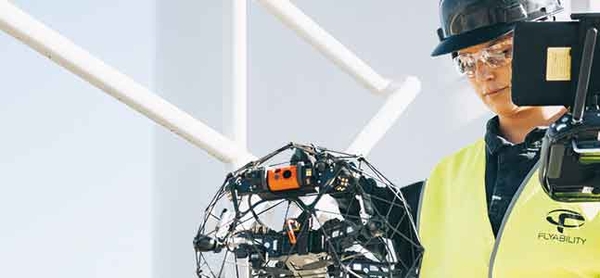A 1,000 times digital

State-funded research is a driver of economic and social innovation. On behalf of the Swiss government, the SNSF provides funding for selected research projects – on digitalisation, for instance.
In 2019, approximately 1,000 SNSF-funded projects were carrying out research on various aspects of digitalisation. How could we reinvent architecture based on electronic computing? Philippe Block is looking for answers to this question. How do local media come to terms with the digital age? Nathalie Pignard-Cheynel is analysing some of their responses. How could movement disorders in children be diagnosed and treated more quickly? Stéphane Armand is developing an online simulator.
These and a host of other examples illustrate how indispensable state funding is – whether for basic research or use-inspired research. SNSF grants enable scientists to conduct independent projects: that do not directly pursue any commercial purpose; on topics that are relevant to society and the economy; and at costs that most companies could not bear or justify economically.
Open to new ideas
The SNSF allocates approximately 80 per cent of its budget to basic research. Such research, which does not aim to impress in the short term, is a precondition of innovation. “When doing basic science, you are more open to new, sometimes even revolutionary ideas,” says Mathilde Bouvel, a mathematician at ETH Zurich, in one of the videos produced by the SNSF in 2019.
In the 2021–2024 period, the SNSF will also provide more support specifically for use-inspired research. This research category translates scientific knowledge into innovation, thereby leading not only to new applications but also to start-up companies – a process that adds value and creates jobs.
Mastering challenges
Switzerland’s competitiveness and standard of living are, to a large degree, founded on its strong scientific research. What is more, ecological, societal and technical challenges can only be met if science provides the necessary insights. This applies to climate change, public health or, as mentioned, digitalisation. The Swiss government has helped pave the way by giving the SNSF a mandate to promote Swiss science.
NCCRs and digitalisation
Key knowledge about digitalisation is generated by the National Centres of Competence in Research (NCCRs) conducted by the SNSF. For example, the NCCR QSIT has been investigating technologies that rely on quantum-physical effects. The NCCR Robotics is developing drones and four-legged robots. Several start-ups emerging from this NCCR won a prize in 2019. The NCCR Digital Fabrication aims to give digital technology a key role in construction. All NCCRs of the 5th series, approved by the Federal Council in December 2019, will contribute to strengthening basic research in computer sciences.